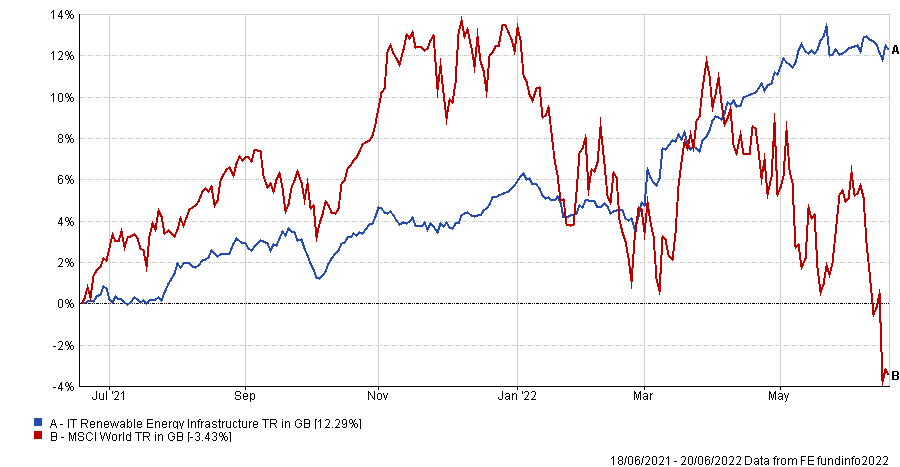Sustainability has been a massive theme in the investment world over the past few years and many new environmental, social and governance (ESG) funds have been established to profit from the path to net-zero.
However, green assets are often growth oriented and ESG portfolios have suffered this year from the rotation in markets towards value.
These types of funds performed extremely well in an era of free money and pro-growth, but the ESG bubble may be about to burst, according to James Penny, chief investment officer at TAM Asset Management.
Now that the wave carrying them over the past decade has lost momentum, Penny said that many sustainable funds will struggle to outperform an environment of 9.1% inflation in the UK, while in the US they are having to contend with aggressive 0.75 percentage point interest rate hikes from the Federal Reserve.
Penny added: “It’s this soft underbelly of the ESG space that remains so exposed to this ruthless market.”
Even though the transition towards clean energy and net-zero commitments made by governments around the globe present many investment opportunities, too many funds are competing for a limited space, according to David Coombs, multi-asset fund manager at Rathbones.
He said: “Its’s a very nascent industry so there will be significant losers in that space. Not everyone is going to make money.”
Many existing funds have been quick to introduce ESG mandates, but a lot of them invested into narrow growth sectors such as technology and healthcare rather than considering the environmental impact of their assets, according to James Sym, manager of the River and Mercantile European fund.
Indeed, many contain big US tech names such as Microsoft and Alphabet within their top holdings, which have suffered this year from high inflation and interest rates, which impact the forecasts on their future earnings.
This has led to an ESG market saturated with growth funds that have little protection against this value cycle.
However, Patrick Thomas, Head of ESG Portfolio Management, Canaccord Genuity Wealth Management, pointed out that although “some ESG funds have been technology funds in disguise”, not all sustainable funds have faltered since the start of the year.
In fact, some parts of the market thrived, with portfolios in the IT Renewable Energy Infrastructure sectors making an average return of 12.3% over the past year as the MSCI World dropped 3.4%.
Total return of sector vs index

Source: FE Analytics
Thomas said: “The definition of sustainable is far too broad to be useful – the global clean energy sector has been defensive in an environment where global equity markets have been selling off and the sector is incredibly growth oriented.”
Companies supplying energy have been highly in demand in recent months as governments seek new sources of power to subsidise the lost imports from Russia.
Since the invasion of Ukraine, Europe has lost almost 40% of its energy and gas sources and authorities are encourages the encouraging the construction of new renewable energy sites with attractive tax cuts.
However, Penny said that some European governments may favour coal power as a short-term solution to the gap in energy production, which could set the renewable movement back.
He said: “It’s likely these pressures will show their scars on the growth trajectory of ESG innovation for some time.”
In order to perform well in future, ESG funds will have to stop being so growth heavy and in the meantime, alternatives are likely to be a more popular choice for sustainable investors.
He said: “With the era of quantitative tightening far from over, one can envisage a continuation in outflows from ESG funds into more ESG-agnostic strategies focusing on capital preservation rather than capital innovation.
“This threat to ESG remains an opportunity for innovators to create a new raft of ESG strategies specifically designed to deliver market-uncorrelated outperformance, which so many investors are crying out for in this bear market.”




